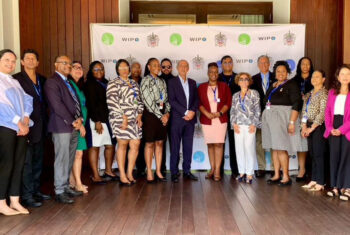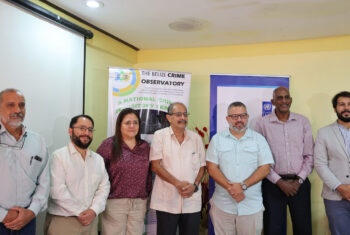Belmopan. June 10, 2021. 10:00 a.m.
The Ministry of Finance, Economic Development and Investment, Belize’s National Designated Authority (NDA) to the Green Climate Fund (GCF), is pleased to announce the GCF’s approval of the National Adaptation Planning Proposal “Enhancing Adaptation Planning and Increasing Climate Resilience in the Coastal Zone and Fisheries Sector in Belize.”
This project valued at BZ$1.2 million, will set the stage for a more large-scale action to address climate change adaptation in the fisheries and coastal zone sectors of Belize. It seeks to increase the resilience of the coastal zone and fisheries sector through improved climate data and information gathering, monitoring and dissemination, assessments of impacts of climate change on select communities, mainstreaming of climate change considerations into the relevant plans and policies, and strengthening of coastal and fisheries communities and organizations’ communication network for appropriate climate response.
The Food and Agriculture Organization (FAO) of the United Nations will be the delivery partner having already assisted Belize through 85 interventions over the past 15 years. Moreover, with this climate financing from the GCF and the implementation expertise of the FAO, the project will be able to benefit Belize Fisheries Department, Coastal Zone Management Authority and Institute, the National Meteorological Service, fishers and fishing communities.
Furthermore, Dr. Osmond Martinez, CEO in the ministry and the National Designated Authority; Mr. Leroy Martinez, Economist/GCF focal point; and Ms. Khara Roches, national coordinator, held a virtual meeting with Dr. Orville Grey, GCF regional manager, and Ms. Neranda Maurice, GCF regional advisor, to discuss additional funding for other sector naps including water, tourism, and health, among others.
The Green Climate Fund is a unique global platform to respond to climate change by investing in low-emission and climate-resilient development. Since 2015, Belize has engaged with the GCF to improve access to international funds and to encourage investment in projects and programmes that will help the country adapt and mitigate climate change and its impacts.
Ends
For more information, contact:
CEO Dr. Osmond Martinez, Belize’s NDA to the GCF: ceo@med.gov.bz
Mr. Leroy Martinez, GCF Focal Point: leroy.martinez@med.gov.bz
________________________________________
NOTES FOR EDITORS
About Ministry of Finance, Economic Development, and Investment:
About the Ministry of Finance, Economic Development, and Investment, in Belize it formulates and recommends national development policies, strategies and programmes to promote macroeconomic stability, sustainable socioeconomic development and the reduction of poverty. In June 2015, it was appointed through a Cabinet decision as Belize’s Nationally Designated Authority (NDA) to the GCF.
About the Food and Agriculture Organization of the United Nations:
The Food and Agriculture Organization of the United Nations (FAO) [Note 1] is a specialized agency of the United Nations that leads international efforts to defeat hunger and improve nutrition and security.
About the Green Climate Fund:
The Green Climate Fund (GCF) is a global fund created to support the efforts of developing countries to respond to the challenge of climate change. GCF helps developing countries limit or reduce their greenhouse gas (GHG) emissions and adapt to climate change. It seeks to promote a paradigm shift to low-emission and climate-resilient development, taking into account the needs of nations that are particularly vulnerable to climate change impacts. It was set up by the 194 countries who are parties to the United Nations Framework Convention on Climate Change (UNFCCC) in 2010, as part of the Convention’s financial mechanism. It aims to deliver equal amounts of funding to mitigation and adaptation, while being guided by the Convention’s principles and provisions. To date, the GCF has raised USD10.3 billion in pledges from 48 countries/regions/cities, including 9 representing developing countries.


